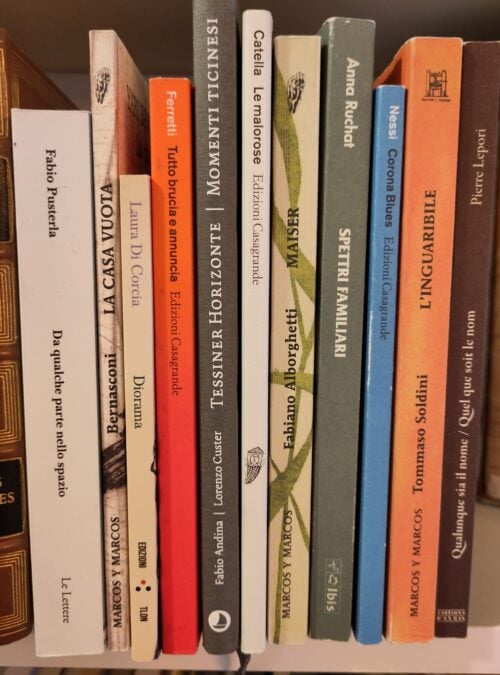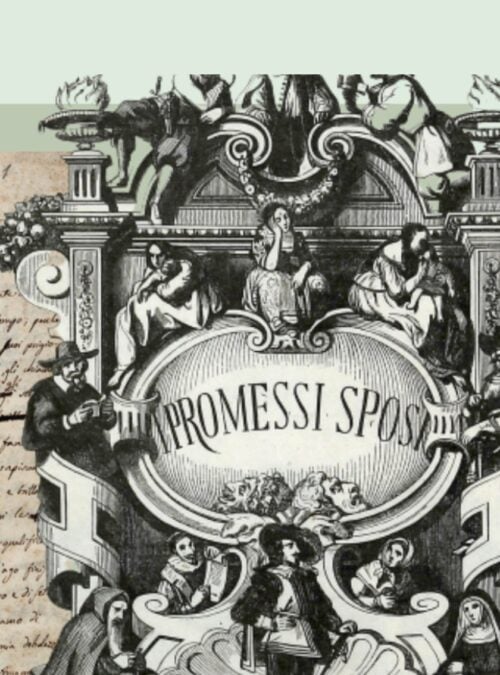The Italian book in Indonesia
Author: Maria Battaglia, Direktorin des Italienischen Kulturinstituts in Jakarta

Italian-language publishing in Indonesia is rather limited. With the exception of a few local-language versions of Italian books, the rest are in English. For Indonesian-language versions of contemporary Italian authors, the most active publishing house is Gramedia, which between 2005 and 2021 published titles such as Va’ dove ti porta il cuore and Ascolta la mia voce by Susanna Tamaro, Fra i tagliatori di teste. Elio Modigliani: un fiorentino all’esplorazione di Nias Salatan-1886 and Nella stagione delle farfalle gialle by Vanni Puccioni, and finally Quasi quasi oggi cresco by Pina Irace. Between 1999 and 2011, the same publisher also published two editions of the Italian/Indonesian dictionary, including one in pocket format, edited by Faizh Soenoto Rivai, Professor of Indonesian at the Università l’Orientale in Naples.
Some publications have also received a contribution to the cost of translation from the Ministry of Foreign Affairs and International Cooperation, through the Italian Cultural Institute. However, these are generally translations from the English version of the work, and only in a few cases from the original version.
When it comes to books by Italian authors in English, on the other hand, the picture is much broader. International bookshop chains such as Periplus and Kinokuniya, which are present in several Jakarta cities, offer a wide selection of books by Italian authors, which can also be purchased online, from Elena Ferrante to Erri De Luca and Elisabetta Dami‘s Geronimo Stilton series.
The scarcity of Italian texts in Indonesian is mainly due to the small number of translators specialising in the two languages. Only a few Italian professors specialising in Indonesian language and culture have been involved in translating literary texts from Italian into Indonesian over the years, such as Antonia Soriente, who teaches Indonesian at the Università l’Orientale in Naples and has translated books from Italian into Indonesian. Added to this is the fact that Italian is not one of the most widely studied foreign languages in Indonesia. In fact, there is no Italian department and Italian is not a subject on the syllabus of local schools.
Language provision is limited mainly to courses at the Italian Cultural Institute in Jakarta and, at university level, to optional courses organised at six local universities in the cities of Jakarta, Yogyakarta and Semarang, thanks to contributions made by the Ministry of Foreign Affairs and International Cooperation to foreign universities for Italian chairs, via the Cultural Institute.
The Italian chair established at Indonesia’s most prestigious university, Universitas Indonesia, also contributes to the dissemination of the language, but only at an optional level with A1 and A2 courses.
This situation, which is certainly not conducive to the promotion of Italian books in Indonesia, has encouraged the development of publishing projects by the Italian Cultural Institute.
The 2020 pandemic was the trigger. Once the initial “disorientation” caused by the new and tragic scenarios had passed, the Institute, by reorganising the programme of events in place until then, turned its attention to new forms of cultural offerings of interest to the public. The internet immediately became the exclusive means of organising our events, and with it all the other digital programmes.
The use of podcasts on the internet was the first useful channel for celebrating the centenary of Gianni Rodari‘s birth in 2020, by promoting the reading in Indonesian, by actors from the Ayo Dongeng Indonesia association, of ten short stories from the collection Favole al telefono.
Then, in 2021, to mark the 700th anniversary of the death of Dante Alighieri, the Institute took part in the project devised and supported by the Ministry of Foreign Affairs and International Cooperation and the Municipality of Ravenna for the publication of the audio book Dalla Selva oscura al Paradiso. A journey through the Divine Comedy in thirty-three languages.
In this context, the Institute has taken steps to have extracts from the Inferno, the Purgatorio and the Paradiso translated into Indonesian for the first time. The translation was carried out by Professors Antonia Soriente and Danny Susanto, lecturer at Universitas Indonesia, with contributions from the poet Nirwan Dewanto. The play was read by two professional Indonesian actors, Christine Hakim and Satrya Rannga Buana.
In 2022, following the success of the podcast on Rodari’s tales, we continued to promote the writer from Omegna by publishing in Indonesian ten stories taken from the collections Cento Gianni Rodari and Favole al telefono. The project, carried out by the Italian Cultural Institute, follows on from the online meetings organised in 2021 under the title A sbagliare le storie: una fantasia infinita, in collaboration with the Rodari Foundation and with the participation of Pino Boero, Professor of Children’s Literature and Reading Pedagogy at the University of Genoa and President of the “Rodari Città di Omegna” prize jury.
The edition published by the Institute, entitled Manusia Kecil Pengatur Hujan &Cerita Lainnnya dari (The little man in the rain and other tales), was illustrated by Indonesian illustrator Dina Riyanti, a prize-winner at Bologna Children’s Book Fair.
At the start of the project, it was not easy to find a publishing house willing to take on the publishing because of the reluctance of some local publishers who considered Rodari’s stories to be a little too “progressive” and “revolutionary” for a young audience who might not have understood why, for example, the shrimp in the tale of the Young Shrimp suddenly decides to walk forward instead of backwards like all the other shrimp.
This reaction is understandable if we consider that the Indonesian education system, based on a ‘deductive’ and ‘formalistic’ approach to the learning process, is not yet ready to adopt the innovative principles of Rodari’s pedagogy, in which the central place of the learner is fundamental.
Given these premises, we believe that promoting in Indonesia the ethical significance and didactic value of Gianni Rodari’s tales, in which imagination and fantasy are the key elements in the child’s interpretation of the world, will be an arduous task…
Jakarta, 20 July 2023










